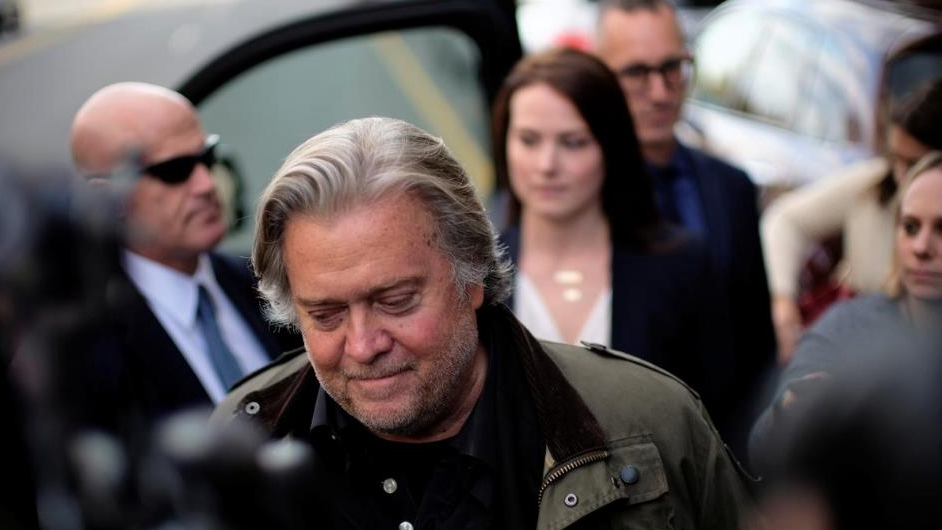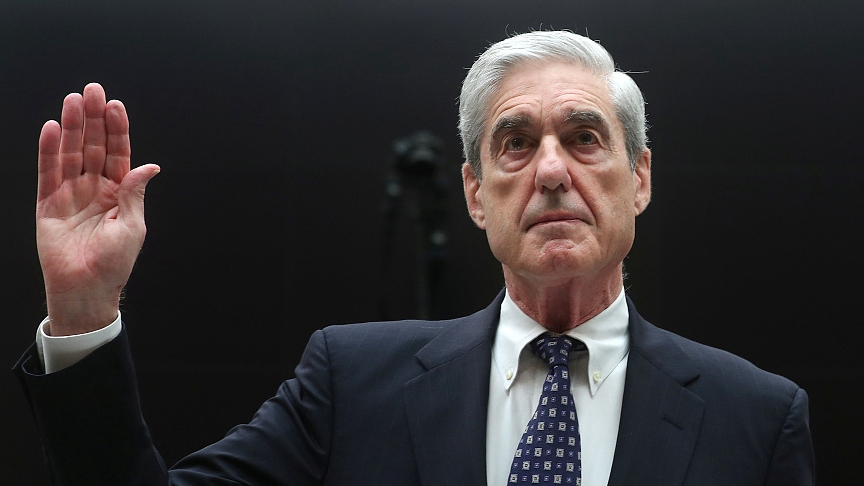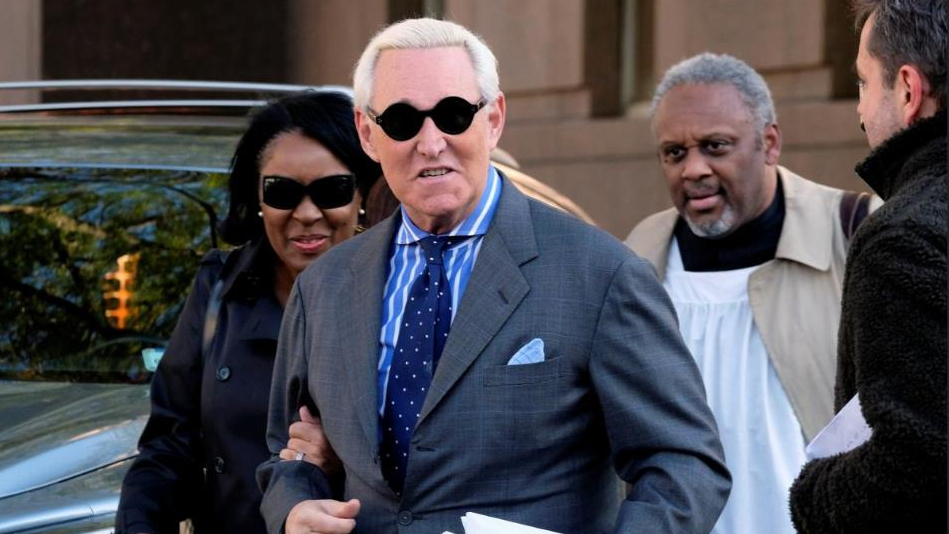
Former White House chief strategist Steve Bannon departs after testifying in the criminal trial of Roger Stone, former campaign adviser to Donald Trump, on charges of lying to Congress, obstructing justice and witness tampering at U.S. District Court in Washington, DC, November 8, 2019. /Reuters Photo
Former White House chief strategist Steve Bannon departs after testifying in the criminal trial of Roger Stone, former campaign adviser to Donald Trump, on charges of lying to Congress, obstructing justice and witness tampering at U.S. District Court in Washington, DC, November 8, 2019. /Reuters Photo
President Donald Trump's 2016 campaign CEO Steve Bannon delivered potentially damaging testimony on Friday against Roger Stone, describing communicating with Trump's longtime adviser about WikiLeaks despite Stone's later denials and saying he believed Stone "had a relationship" with the website's founder.
Bannon testified that he had viewed Stone as the "access point" between the Trump campaign and WikiLeaks, which disclosed numerous stolen Democratic emails in the months before the 2016 election that were damaging to Trump's opponent Hillary Clinton.
After testifying, Bannon - a prominent conservative political strategist and former senior White House adviser to Trump - said he appeared as a prosecution witness in Stone's trial in federal court only because he was subpoenaed.
U.S. intelligence agencies and former Special Counsel Robert Mueller determined that the emails were stolen by Russian state-backed hackers as part of Moscow's efforts to meddle in the election and boost Trump's candidacy.
"I was led to believe he had a relationship with WikiLeaks and Julian Assange," Bannon said of Stone, referring to the WikiLeaks founder.

Former Special Counsel Robert Mueller testifies before a House Judiciary Committee hearing on the Office of Special Counsel's investigation into Russian Interference in the 2016 Presidential Election on Capitol Hill in Washington, July 24, 2019. /VCG Photo
Former Special Counsel Robert Mueller testifies before a House Judiciary Committee hearing on the Office of Special Counsel's investigation into Russian Interference in the 2016 Presidential Election on Capitol Hill in Washington, July 24, 2019. /VCG Photo
Stone has pleaded not guilty to charges of obstructing justice, witness tampering and lying to the U.S. House of Representatives Intelligence Committee in its investigation into Russia interference in the 2016 election. The veteran Republican operative, a friend and ally of Trump for some four decades, faces a possible decades-long sentence if convicted.
The Trump campaign relished the release of the hacked emails and was eager to learn about future releases but the president and his campaign team have denied conspiring with Russia.
Stone told the House committee in sworn testimony that he had never communicated with any members of Trump's campaign about WikiLeaks or Julian Assange.
Bannon, appearing on the third day of testimony in the trial, said he and Stone had discussed WikiLeaks on several occasions before and after Bannon joined Trump's campaign in August 2016. These included an October 4, 2016 exchange in which Bannon emailed Stone after an Assange news conference had failed to produce damaging information on Clinton as expected.
"He told me he had a relationship" with Assange, Bannon said, when asked by the prosecution why he chose to email Stone to ask why Assange's news conference had been a dud. "It would be natural for me to reach out to him."

Roger Stone, former campaign advisor to U.S. President Donald Trump, arrives for the continuation of his criminal trial on charges of lying to Congress, obstructing justice and witness tampering at U.S. District Court in Washington, November 8, 2019. /Reuters Photo
Roger Stone, former campaign advisor to U.S. President Donald Trump, arrives for the continuation of his criminal trial on charges of lying to Congress, obstructing justice and witness tampering at U.S. District Court in Washington, November 8, 2019. /Reuters Photo
Stone also is accused of denying the existence of certain emails and texts related to Assange or Wikileaks.
Bannon answered questions by prosecutor Michael Marando without argument. After leaving the courthouse, Bannon said that "I was compelled to testify" and was forced to testify earlier to the grand jury in the case, to Congress and to Mueller's investigators.
Bannon appeared at least twice to contradict his grand jury testimony about the frequency with which he and Stone discussed WikiLeaks and about whether Stone was considered the campaign's "access point."
In cross examination by Stone's attorney Robert Buschel, Bannon acknowledged he was unaware of anyone in Trump's campaign ever formally dispatching Stone to learn when Assange might release more emails.
(With input from Reuters)